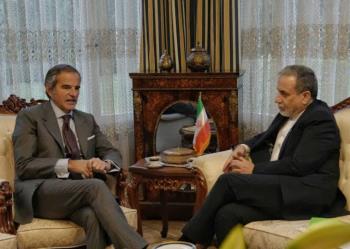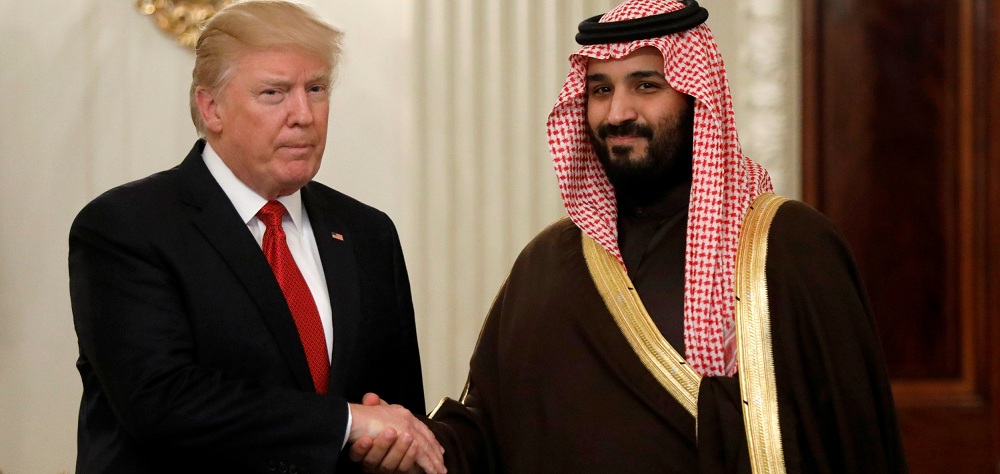Alwaght- It is now over a week since large-scale, surprising, and crisis-making attacks were launched on Saudi Arabia’s Aramco oil facilities by Yemen’s Ansarullah movement. The attack brought to a halt over half of the Saudi oil production, meaning huge financial damage to the major oil supplier.
The attack had political repercussions. Over the last week, the American and Saudi political and military officials, along with their media, were struggling to link the strikes to sources out of Yemen. First Iraq and then Iran were named by the Western propaganda reports as the very likely origins of the strikes on the oil facilities. The American officials, however, said that they will wait for the official Saudi investigation result into the incident before making any moves. But Saudi Arabia declined to name Iran as the party directly launching the attacks both in the remarks made by the Saudi military spokesman and in the letter sent to the United Nations Security Council. In its letter to the UNSC, Riyadh asked for the UN experts to join the probe, as it said that there were signs that the weapons used in the strikes on Aramco were Iranian.
Riyadh: From playing victim to hoping for Iran-US confrontation
Without any doubt, the Saudis sustained severe blow from the attack by the Yemeni revolutionary movement, a blow they never thought to bring such huge damage to the country’s oil industry and the economy as a whole. The substantial aftershocks to the Saudi officials caused them in the initial days to announce they focus on crisis control and restoration of the lost production volume. The severe worries by the big economies, mainly the Western economies, about rise of oil prices on the one hand and the Saudi inability to deliver the oil under contracts caused the Saudis to press for decrease of the political implications of the blow in another way: Introducing Iran as the main factor behind the attacks, a trick aimed at covering up the military weakness despite multi-billion modern weapons purchases from the Western allies, on top of them the US.
Now the Saudis and their Western supporters’ argument is that Ansarullah and Yemen military cannot plan and execute such accurate and well-calculated strikes with such a big size of destruction and that a big military power should have links to the incident. The claims, providing no evidence and with ignorance of Ansarullah’s report on how the attacks were accurately carried out, simply focus on the argument that Yemen and Ansarullah do not have the military technology required to launch strikes of this large scale.
The claims mainly served a Saudi intention to restore their damaged face in the Muslim world. Now it is clear to the regional states that Saudi Arabia, whose military is ranked among the world’s top powers in terms of equipment, is not more than a paper tiger and cannot protect itself against a small branch of the Axis of Resistance, let along facing the whole of the Resistance camp. The attack labeled Saudi Arabia and its allies as the losers of a confrontation with the Axis of Resistance, led by Iran and covering Syria, Lebanon, Iraq, and Yemen. The anti-Iranian accusations, many experts agree, are a circumvention of accepting such a truth. Riyadh intends to continue its strikes on Yemen using the post-attack sympathy that also helps it win further diplomatic and military support of the West in a war marking five years of Saudi failure. The Saudis after a relatively long time resumed their airstrikes on Hudaydah port in the south violating the Stockholm ceasefire. Ansarullah warned that the attacks can result in the collapse of the deal.
On the other side, just unlike the past conservative generation of the kingdom rulers, Crown Prince Mohammed bin Salman yearns to a US military confrontation with Iran. He especially counts on President Donald Trump to take such step in the quagmire. But at the same time, the Arab kingdom acted with caution in introducing Iran as the party to blame as it fears damages to its interests bigger than the scale they were exposed to in the war with Yemen and as it receives confusing messages of support from the US for its security and interest once a war with Tehran starts. Still, it hopes for military moves against Iran. Iran asserted that any military action will be met with a strong and wide-ranging response and that can lead to an “all-out war.”
The US and grave risk of military action
The attacks on Saudi oil installations proved to be a big challenge to the American interests in the region. Washington traditionally feels a duty to protect the flow of oil from the region, especially that of Saudi Arabia, to the global markets and has made massive military deployment to the region under this pretext. The US also under this pretext sells billions of dollars of weapons to the Arab states and its companies sign lucrative energy contracts with them. Under Trump, whose mercantilist view to the foreign policy has imposed way heavier costs than before on the Arab allies especially Saudi Arabia, the White House on the one hand finds the decline to protect Saudi Arabia dealing a blow to the trust in Washington and on the other hand siding with bin Salman’s warlike approach of unpredictable consequences to the interests of the US and its regional allies including the Israeli regime that like Saudi Arabia presses Trump for war against Iran.
In such conditions, Trump finds no choice better than the show sanctions that are already in place and also a maneuver of support to Saudi Arabia in the Yemen war. The American president also hopes to force Iran to the negotiating table using military action threats. But the fact is that Iran’s deterrence power and regional influence of the Resistance bloc ultimately determine the regional equations amid murky political atmosphere the Western politicians and media have created.



























